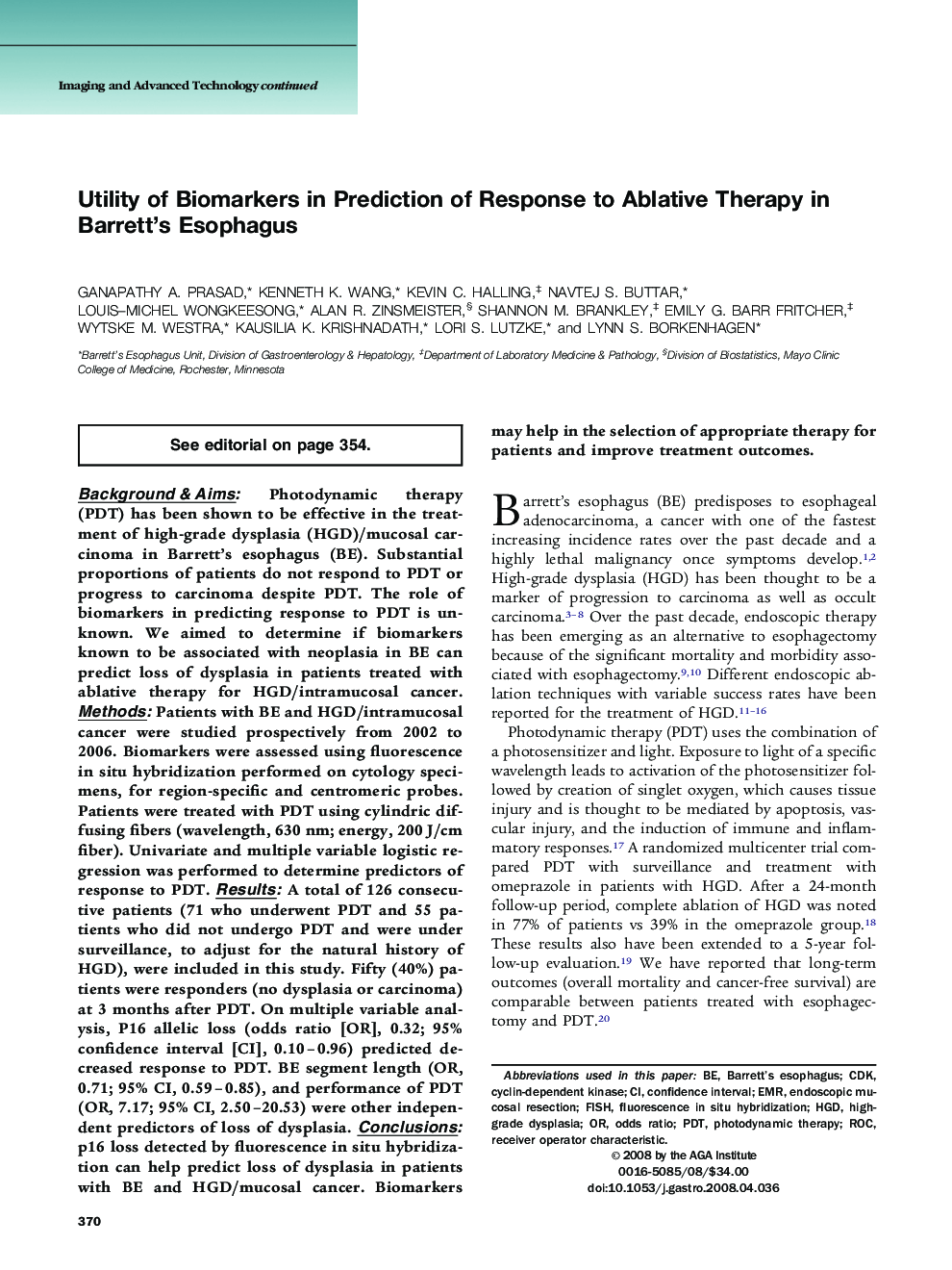| کد مقاله | کد نشریه | سال انتشار | مقاله انگلیسی | نسخه تمام متن |
|---|---|---|---|---|
| 3299293 | 1209926 | 2008 | 10 صفحه PDF | دانلود رایگان |

Background & Aims: Photodynamic therapy (PDT) has been shown to be effective in the treatment of high-grade dysplasia (HGD)/mucosal carcinoma in Barrett's esophagus (BE). Substantial proportions of patients do not respond to PDT or progress to carcinoma despite PDT. The role of biomarkers in predicting response to PDT is unknown. We aimed to determine if biomarkers known to be associated with neoplasia in BE can predict loss of dysplasia in patients treated with ablative therapy for HGD/intramucosal cancer. Methods: Patients with BE and HGD/intramucosal cancer were studied prospectively from 2002 to 2006. Biomarkers were assessed using fluorescence in situ hybridization performed on cytology specimens, for region-specific and centromeric probes. Patients were treated with PDT using cylindric diffusing fibers (wavelength, 630 nm; energy, 200 J/cm fiber). Univariate and multiple variable logistic regression was performed to determine predictors of response to PDT. Results: A total of 126 consecutive patients (71 who underwent PDT and 55 patients who did not undergo PDT and were under surveillance, to adjust for the natural history of HGD), were included in this study. Fifty (40%) patients were responders (no dysplasia or carcinoma) at 3 months after PDT. On multiple variable analysis, P16 allelic loss (odds ratio [OR], 0.32; 95% confidence interval [CI], 0.10–0.96) predicted decreased response to PDT. BE segment length (OR, 0.71; 95% CI, 0.59–0.85), and performance of PDT (OR, 7.17; 95% CI, 2.50–20.53) were other independent predictors of loss of dysplasia. Conclusions: p16 loss detected by fluorescence in situ hybridization can help predict loss of dysplasia in patients with BE and HGD/mucosal cancer. Biomarkers may help in the selection of appropriate therapy for patients and improve treatment outcomes.
Journal: Gastroenterology - Volume 135, Issue 2, August 2008, Pages 370–379